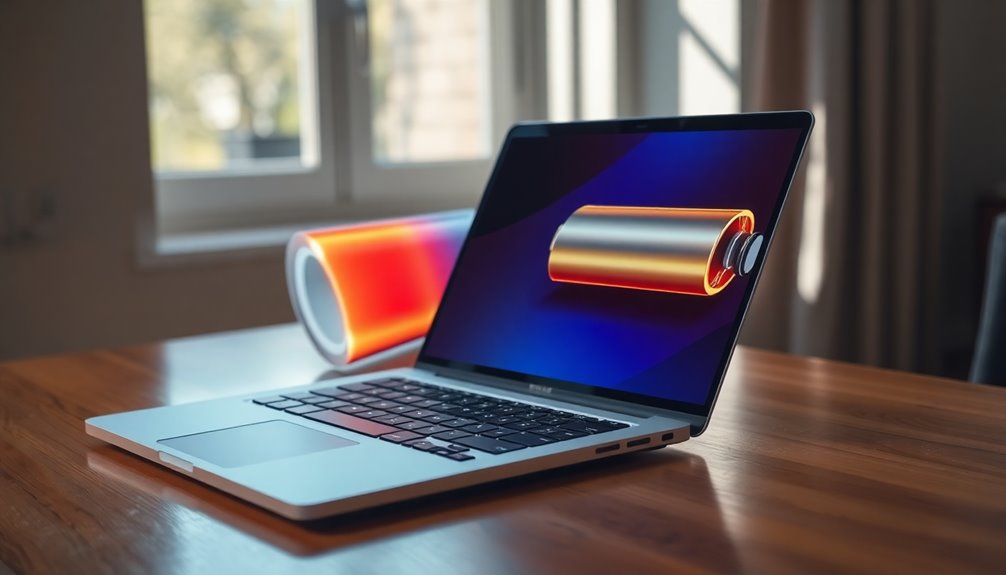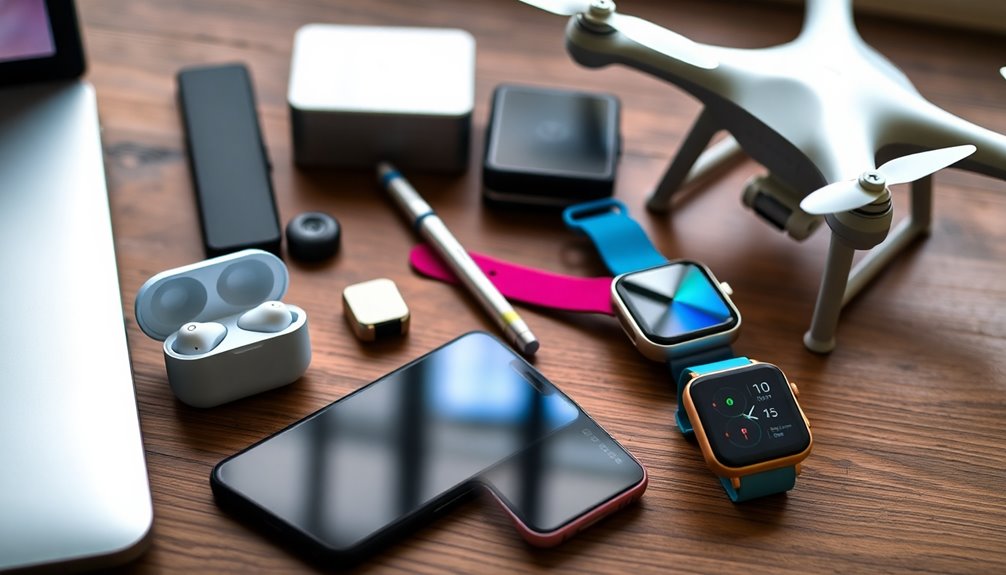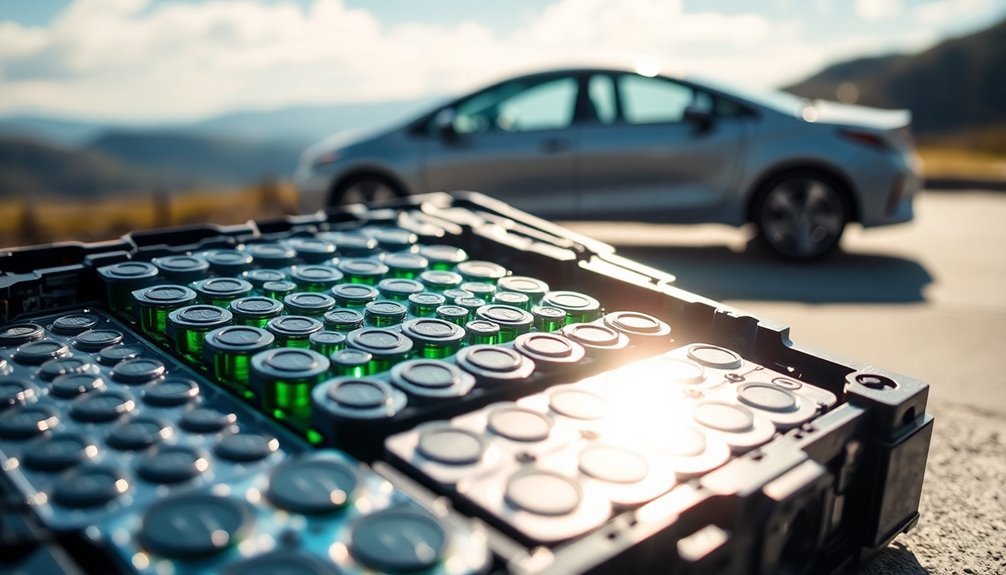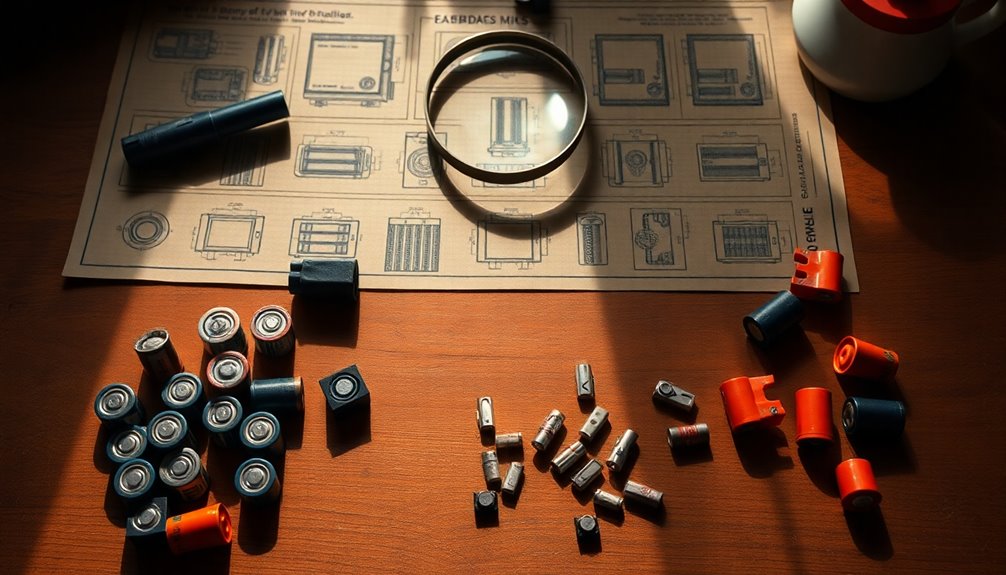Yes, laptops do have lithium batteries, typically lithium-ion or lithium-polymer types. These batteries are favored for their high energy density, which allows for longer usage times, and their lightweight design, making laptops more portable. They're rechargeable and can endure hundreds of cycles without significant performance degradation. While they offer numerous advantages, such as fast charging, they do have downsides like limited lifespan and potential safety issues. Understanding how these batteries function can help you appreciate the science behind them. You'll discover more about their benefits and drawbacks as you explore further.
Key Takeaways
- Most modern laptops are equipped with lithium batteries, specifically lithium-ion (Li-ion) or lithium-polymer (LiPo) types, for efficient power supply.
- Lithium batteries offer high energy density, enabling longer usage times without frequent recharging.
- These batteries are lightweight, contributing to sleek and portable laptop designs favored by consumers.
- Lithium batteries are rechargeable, providing hundreds of charge cycles without significant performance degradation due to the absence of memory effect.
- While lithium batteries enhance laptop functionality, they come with safety concerns and a limited lifespan of 2 to 4 years.
Why Laptops Use Lithium Batteries
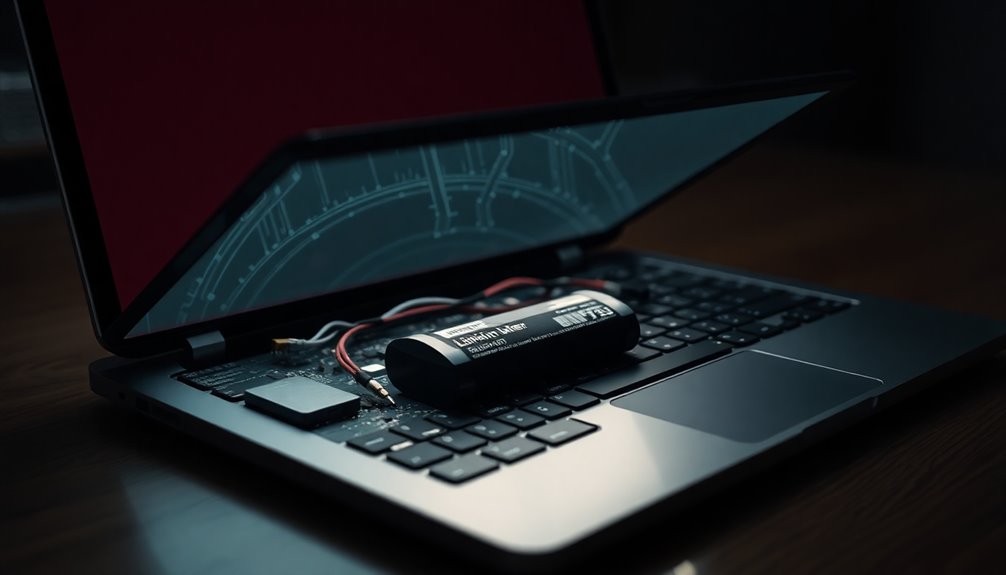
Since you want a laptop that lasts longer and is easy to carry, it's no surprise that most laptops use lithium-ion (Li-ion) batteries.
These batteries boast a high energy density, reaching up to 330 Wh/kg, which means your laptop can run longer without needing a recharge.
With a low self-discharge rate of about 1.52% per month, your laptop retains its charge even when not in use.
The lightweight design of lithium-ion batteries enhances portability, making modern laptops sleek and user-friendly.
Additionally, they're rechargeable, lasting for hundreds of charge cycles, providing a sustainable power solution.
The absence of memory effect offers flexibility, allowing you to recharge whenever you need without degrading performance.
These features make lithium batteries the ideal choice for laptops.
Types of Lithium Batteries
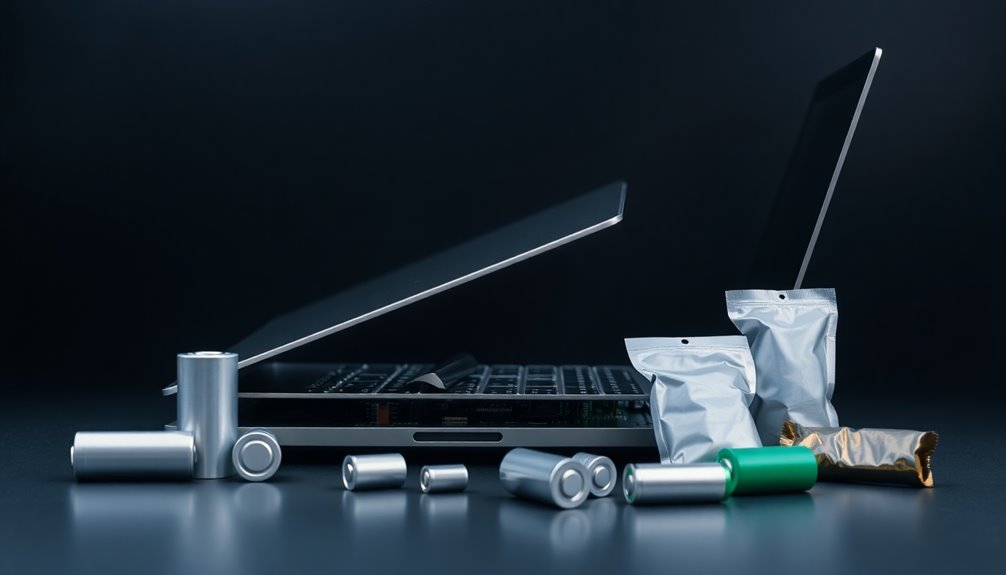
When it comes to powering laptops, two main types of lithium batteries dominate the market: Lithium-Ion (Li-ion) and Lithium-Polymer (LiPo).
Li-ion batteries are favored for their high energy density, reaching up to 330 Wh/kg, which translates to longer battery life compared to older technologies. They also have low self-discharge rates, making them reliable for extended periods.
On the other hand, Lithium-Polymer batteries offer flexibility in design, allowing for ultra-thin laptop batteries, though they typically have lower energy density.
Both types are rechargeable lithium batteries equipped with protection circuits to prevent overheating during charging and discharging.
However, after 2 to 4 years of use, you may notice capacity degradation, requiring eventual replacement.
How Lithium Batteries Function
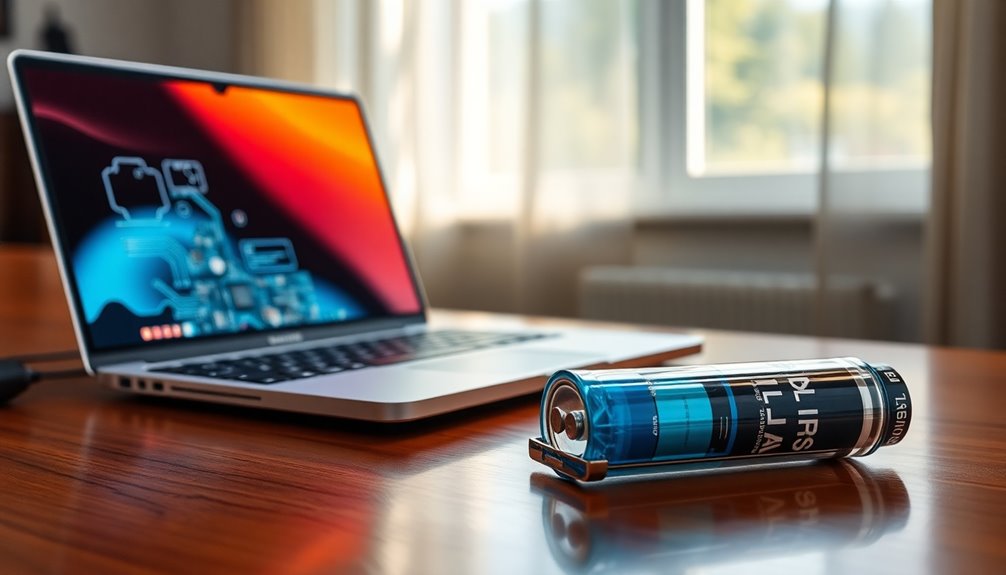
Lithium batteries work by enabling the movement of lithium ions between the anode and cathode, which generates the electrical energy needed to power your laptop.
During discharge, lithium ions migrate from the anode to the cathode, while charging reverses this flow, pushing ions back to the anode.
This process relies on oxidation-reduction reactions, with oxidation at the anode and reduction at the cathode, facilitating electron flow.
The typical cycle life of lithium-ion (Li-ion) batteries allows for 300 to 500 complete charge and discharge cycles before capacity degrades considerably.
Efficient energy transfer enhances performance, and proper charge management is essential for maximizing battery lifespan, ensuring your laptop runs smoothly for as long as possible.
Advantages of Lithium Batteries
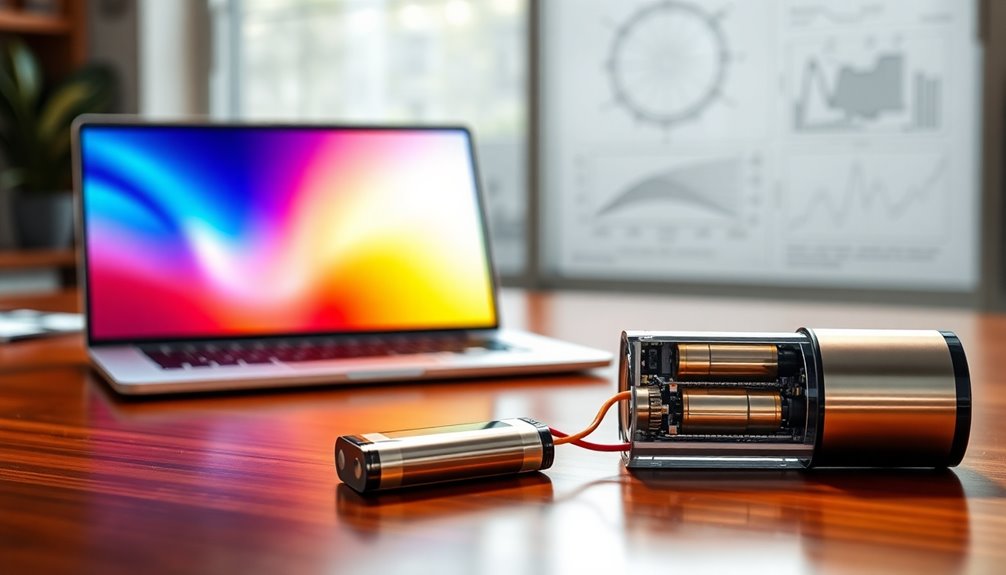
While many battery types have their merits, lithium batteries stand out due to their impressive energy density and efficiency. They provide high energy densities of up to 330 Wh/kg, making them ideal for laptop batteries. Their low self-discharge rate of about 1.52% per month means your devices stay charged longer when not in use.
| Feature | Description | Benefits |
|---|---|---|
| Energy Density | Up to 330 Wh/kg | Longer usage time |
| Weight | Lightweight | Enhanced portability |
| Charging Speed | Fast charging | Reduced downtime |
Lithium batteries require minimal maintenance and have no memory effect, allowing you to recharge anytime without losing capacity. These qualities make them perfect for portable devices. Additionally, understanding the importance of investment strategies can help you maximize the benefits of your financial decisions, just as lithium batteries enhance the performance of laptops.
Disadvantages of Lithium Batteries
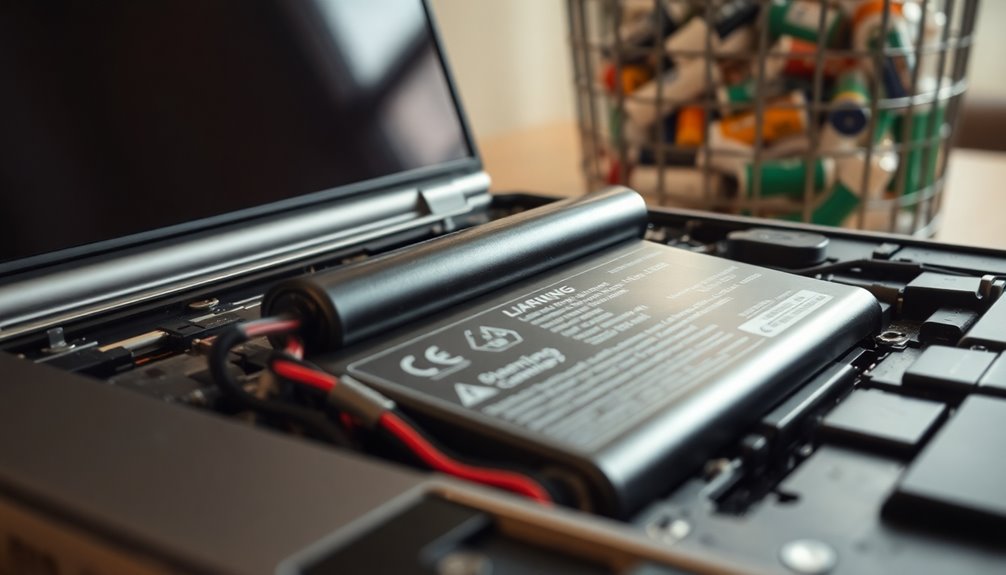
Despite their many advantages, lithium batteries come with several notable disadvantages that can impact your laptop experience.
First, their higher manufacturing costs—about 40% more than nickel-cadmium batteries—can increase the overall price of laptops.
You'll also face degradation over time, with these batteries typically lasting only 2-4 years before requiring replacement.
Safety concerns are significant; overheating can lead to battery failure, posing risks of fire or explosion.
Additionally, lithium batteries need protection circuits to manage safe voltage and current levels, adding complexity and potential failure points.
Finally, environmental issues related to production and disposal highlight the importance of sustainable practices and recycling options to mitigate their impact.
Balancing these factors is vital when choosing a laptop.
Frequently Asked Questions
Do Laptops Have Lithium Batteries in Them?
Yes, most laptops do have lithium batteries in them.
These batteries are popular due to their lightweight design and ability to hold a charge for long periods. You'll find lithium-ion or lithium-polymer batteries delivering reliable power for your device.
They're rechargeable and last several years with proper care.
Just remember, many modern laptops come with non-removable batteries, so maintaining them is essential for ensuring your laptop runs efficiently over time.
What Is the Biggest Disadvantage of a Lithium-Ion Battery?
You might think lithium-ion batteries are the superheroes of the tech world, but they've a kryptonite: a limited lifespan.
After just 2-3 years of use, their capacity can drop drastically, leaving you frustrated and searching for a replacement.
On top of that, they need a protection circuit to manage voltage and current, making them more complex.
Add the risk of overheating, and you've got a battery that's not quite as invincible as it seems!
Why Do Airlines Ask if You Have a Lithium Battery?
Airlines ask if you have a lithium battery because these batteries can pose a fire risk if damaged or mishandled. They can overheat and cause thermal runaway, leading to fires.
To keep everyone safe, airlines follow strict regulations on battery transport. You should always keep your batteries in their original packaging or guarantee the terminals are covered during travel.
This way, you help minimize potential safety hazards while flying.
Why Is a Lithium-Ion Battery Used in Laptops?
Lithium-ion batteries are used in laptops because they can pack up to 330 Wh/kg of energy, giving you longer usage times without adding extra weight.
These batteries have low self-discharge rates, meaning they hold their charge well when you're not using your laptop.
Plus, you can recharge them anytime without worrying about degrading capacity.
Their lightweight design also allows for thinner, more portable laptops, improving your overall user experience.
Conclusion
To sum up, laptops definitely rely on lithium batteries for their efficiency and performance. Did you know that around 70% of the lithium-ion batteries produced globally are used in consumer electronics, including laptops? This impressive statistic highlights their significance in our daily tech. While these batteries offer numerous advantages, being aware of their limitations can help you manage your device better. So, the next time you charge your laptop, you'll appreciate the science powering your productivity!

